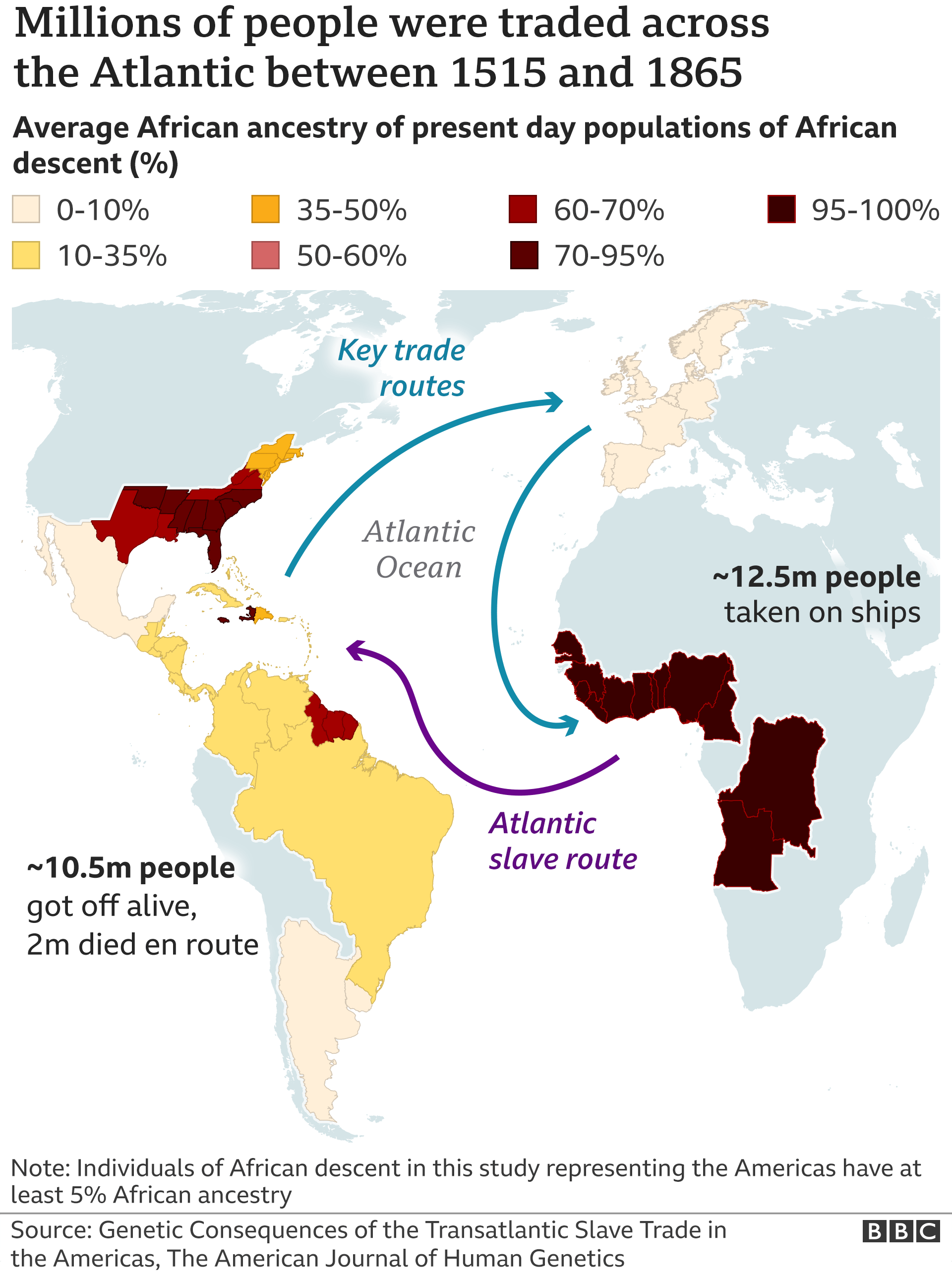A Haunting Legacy that Shaped a Continent
The history of the slave trade in Africa is a dark chapter, leaving an enduring scar on the continent. This abhorrent practice, carried out over centuries, forcibly removed millions of individuals from their homelands, severing their connection to family and culture. The impact was profound, not just in the immediate aftermath but shaping the social, economic, and political trajectories of affected nations for generations to come.

Image: www.un.org
The African slave trade was a complex and multifaceted phenomenon, involving a web of political, economic, and social factors. The demand for cheap labor from European plantations and colonies, coupled with the political instability and inter-tribal conflicts within, provided the terrain for this cruel trade to flourish.
Devastating Demographic Impacts
The demographic impact of the slave trade was staggering. It is estimated that close to 12 million Africans were forcibly transported to the New World between the 16th and 19th centuries. This massive loss of population left a perceptible void in African societies, disrupting family structures, depleting labor forces, and exacerbating poverty.
The trade also had a gendered effect, as young men were often the primary targets for capture and enslavement. This gender imbalance led to a decline in birth rates and the fragmentation of communities.
Economic and Social Upheavals
The slave trade profoundly altered the economic landscape of Africa. The loss of skilled laborers, artisans, and farmers severely impacted productivity and trade within African societies. The diversion of resources towards the slave trade also led to a decreased focus on traditional agriculture and industries, further impoverishing communities.
On a social level, the slave trade introduced a sense of fear and mistrust. Traditional forms of governance were weakened, and social cohesion was severely disrupted as the bonds of family and tradition were shattered.
Cultural and psychological consequences
The psychological impact of the slave trade was equally devastating. Africans who survived the trauma of capture, the Middle Passage, and the horrors of enslavement often struggled with psychological scars that lasted a lifetime. The legacy of slavery left an enduring mark on the psyche of both victims and their descendants.
Furthermore, the cultural continuity of many West and Central African societies was severed as families were torn apart. The diaspora created by the slave trade gave rise to new cultural expressions in the Americas, but also a profound loss of indigenous African traditions.

Image: www.bbc.com
Recent Developments and Expert Insights
Contemporary scholarship has focused on the long-lasting consequences of the slave trade. Recent research explores how the complex relationship between slavery, colonialism, and economic exploitation continued to shape the fortunes of African nations in the post-colonial era.
Experts emphasize the importance of confronting the legacy of the slave trade through education, reconciliation, and economic development. They advocate for reparations programs, acknowledging the past atrocities and addressing the ongoing inequalities that stem from them.
Tips and Advice for Readers
To better understand the profound impact of the slave trade, readers can engage in several activities:
- Visit historical sites: Explore places like the Cape Coast Castle in Ghana, which played a significant role in the transatlantic slave trade, providing a tangible connection to the past.
- Read books and documentaries: Immerse yourself in well-researched literature and documentaries that delve into the horrors of the slave trade and its aftermath.
- Engage in discussions: Participate in open dialogue about the slave trade, its legacy, and the ongoing efforts towards reconciliation and reparations.
By actively seeking knowledge and engaging in meaningful conversations, you can contribute to a deeper understanding and comprehensive approach to addressing the lingering impact of slavery.
FAQ
- What was the main reason behind the slave trade? The primary motivation was the demand for labor on European plantations and colonies in the Americas.
- What were the major impacts of the slave trade? It caused devastating population loss, economic disruptions, social fragmentation, and profound psychological consequences.
- What is being done to address the legacy of the slave trade? Efforts include education, reconciliation, economic development, and reparations programs.
Importance Of Slave Trade In Africa
https://youtube.com/watch?v=uRlMn5jIDEc
Conclusion
The slave trade in Africa stands as a somber reminder of one of humanity’s darkest chapters. Its ramifications continue to resonate today, shaping present-day societies and relations between nations. It is imperative that we continue to educate ourselves on this topic, confronting the past and working towards reconciliation and justice. Each of us has a responsibility to contribute to a more equitable and just future, honoring the memory of those who endured unimaginable horrors.
Do you have any further questions or comments on the topic? Share your thoughts and join the ongoing discussion to deepen your understanding of this crucial aspect of African history.






